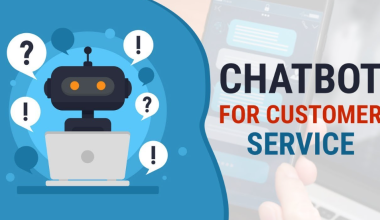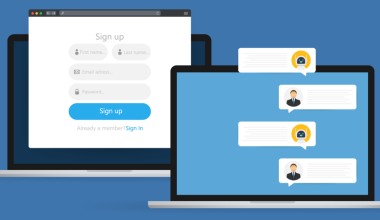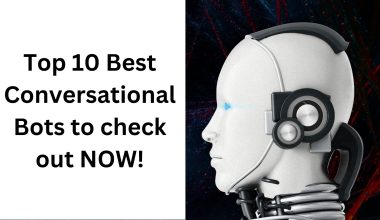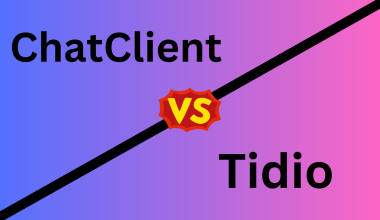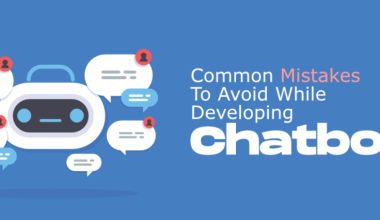From e-commerce and healthcare to real estate, chatbots are transforming the way organizations engage with customers and users. Let’s learn about the various Use Cases of Chatbots for 10 different industries right now.
Why are Chatbots getting Popular?
Chatbots are gaining widespread popularity across industries due to their ability to provide cost-efficient customer service, 24/7 availability and personalized user experiences. They have become an essential tool for businesses looking to enhance customer interactions. Let’s just revisit its main benefits:

- Widespread Use of Messaging Platforms: Messaging platforms have become an integral part of people’s daily communication. With an ever-increasing number of active users on messaging platforms, chatbots offer businesses a means to access a vast market.
- Cost-Efficient Customer Service: Chatbots are reducing costs associated with customer service by automating interactions. This automation decreases the need for extensive human intervention and significantly cuts down on customer service expenses.
- 24/7 Availability: Chatbots are available round the clock, providing instant responses. This quick and continuous availability improves the user experience, making it particularly useful in urgent or emergency scenarios, such as medical assistance.
- Personalized User Experience: Chatbots can engage with customers on a personal level, offering tailored recommendations and responses. This personalized experience is more engaging and effective than static user interfaces that are uniform for all users.
- Measurable Performance: Data collected from chatbot interactions allows for performance measurement and improvement. Businesses can track chatbot performance, identify areas of improvement, and enhance the user experience.
- Automated Lead Generation: Chatbots are actively used for lead generation, helping businesses find potential customers efficiently. They can restart conversations at any time, providing seamless customer support and engagement.
You can learn about chatbots in this beginner’s guide.
Best Use Cases of Chatbots for Different Industries
Following are some of the main use cases explained in detail for different industries:
eCommerce

Customer Feedback Collection
Chatbots can collect feedback from customers after interactions or purchases, making it easy for shoppers to provide input. Feedback helps in understanding customer satisfaction, product performance, and areas for improvement.
Order and Refund Processing
Bots can streamline the ordering process and help customers complete purchases, ultimately increasing sales and conversion rates. They can also assist with refund processing by gathering necessary information and answering questions related to return policies.
Customer Onboarding
These can act as virtual guides, offering onboarding assistance to customers who are new to a platform or service. They can use text, images, videos, and GIFs to create an interactive and informative onboarding experience.
Chatbot Marketing
Chatbots can engage website visitors, answer questions, and provide promotional codes or special offers, guiding customers through the marketing funnel. This can help in building relationships, tracking customer behaviour, and collecting leads, often through email address acquisition.
Lead Generation
These can engage and capture leads in a non-intrusive manner, avoiding traditional pop-ups and sign-up forms (here is a detailed comparison of Forms vs Chatbots). They interact with potential customers and collect email addresses, which can then be used for personalized offers and follow-ups.
Chatbots can also help boost the E-commerce conversion rate for almost all businesses right now.
Hotels, Travel and Hospitality
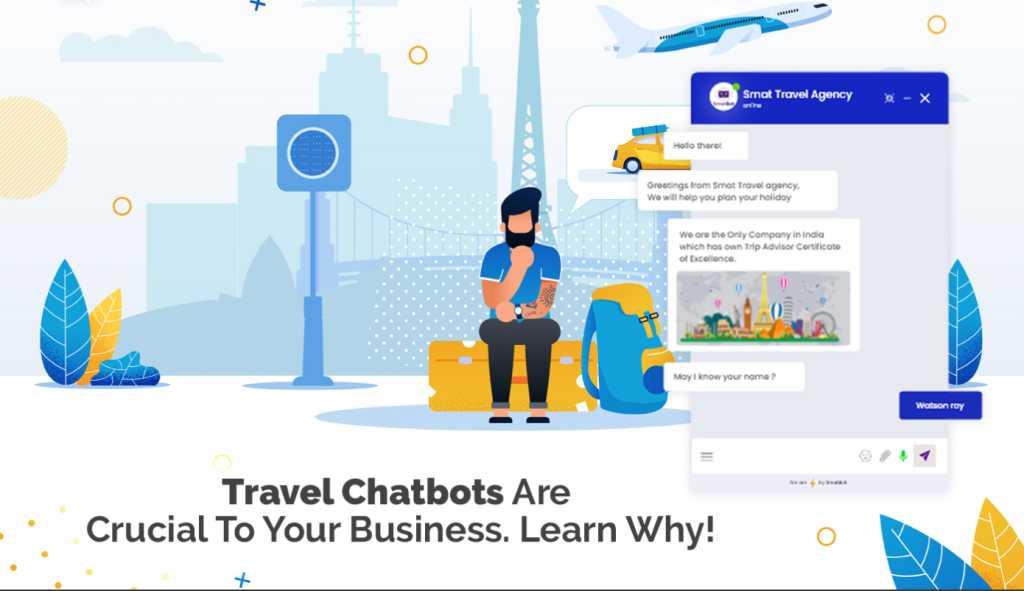
Search and Booking Assistance
Chatbots help users find and book travel options like flights and hotels through various messaging platforms. They can gather preferences, provide recommendations, and check availability.
Inquiry Handling
Chatbots answer common travel-related questions, such as queries about travel insurance, restrictions, or road conditions. They ensure timely and accurate responses, especially during changing circumstances like the COVID-19 pandemic.
Reservation Completion
They can assist users in finalizing reservations by collecting necessary information, such as traveller details and payment data. Also, these facilitate payments and issue electronic itineraries.
Cross-Selling
AI-powered chatbots identify opportunities to offer additional services, such as car rentals, tour discounts, or restaurant deals. This enhances the user experience by recommending hidden gems and attractions at the destination.
Booking Management
Users can use bots to manage their bookings, including requests for special services, date changes, seat selection, and online check-ins.
Cancellation Assistance
Chatbots can handle reservation cancellations, guiding users through the process. They provide information on refunds, suggest alternative options, and initiate refund claims.
Luggage Assistance
Chatbots offer real-time information about luggage, including carousel details for baggage claims and lost luggage assistance.
Banking, Insurance and Finance
Financial Advice and Insights
Chatbots can provide users with personalized financial advice, analyze spending habits, and offer investment recommendations. They assist in financial health checks, credit score monitoring, and budget management.
Account Analysis
Bots enhance transparency by enabling users to check account details, perform balance inquiries, transfer funds, and make bill payments. They provide comprehensive reports on account activities, spending trends, and credit scores.
Expense Tracking
These can track user expenses, allowing them to add transactions and submit expenses. Users can authenticate signatures in real time, speeding up various banking processes.
Balance Notifications and Bill Reminders
These virtual assistants can send balance notifications and reminders for bill payments to users’ mobile devices. This helps users stay on top of their finances, avoid missed payments, and improve their credit scores.
Suspicious Activity Alerts
You can also monitor account activities for suspicious or fraudulent transactions. We can then immediately notify users and the bank of any anomalies, helping to prevent and address potential security issues.
Policy Information and Claims Handling
Chatbots can assist insurance policyholders in accessing policy details, coverage information, and premium payment options. They streamline the claims process, helping users report incidents, submit documentation, and track claim status.
Quote Generation
Bots can provide instant insurance quotes based on user-provided information. Users can easily compare coverage options and pricing.
Market Insights
These virtual bots can provide real-time market updates, stock quotes, and financial news. This way, users will stay informed about market trends and investment opportunities.
Education
Course Queries and Fee Structure
Chatbots serve as informative guides for prospective students and parents. They can answer queries related to courses, fee structures, and syllabi. Providing accurate and up-to-date information creates transparency and helps individuals make informed decisions about their educational choices.
Teaching Assistants
They can function as virtual teaching assistants, providing support to educators. Bots can assist in various tasks, including creating mock tests, tracking student performance and managing assignments. This automation allows educators to focus on high-priority teaching responsibilities.
Admission Process
Chatbots simplify and streamline the admission process. They can assist students in taking entrance tests, tracking their performance, and answering admission-related queries. Through automation, it expedites the process, ensuring efficient handling of applications and responses to prospective students.
Course Scheduling
Course scheduling can be complex, with factors like teacher availability and student preferences to consider. Bots can analyze these variables and create schedules that accommodate both parties. Timely course completion and regular interactions are facilitated by them, improving the overall learning experience.
Student Sentiment Analysis
Through regular interactions and feedback collection, they can gauge student satisfaction and identify areas for improvement. Educators can then adapt their teaching methods to better cater to student needs.
Manufacturing

Supplies and Inventory Check
Bots enable employees to access information on supply status and inventory. Algorithm training can also be used to analyze supply usage and prevent wastage.
Handling Floor Queries
You can use chatbots to address floor-related queries and distribution of workload on different floors. They can then provide insights for quality control and procedure optimization.
Updates and Delivery Notifications
Notifications to employees and clients regarding updates and delivery status can easily be automated using them. There will be quick dissemination of information, ultimately saving time for customers and support teams.
Entertainment

Instant and Personalized Customer Support
Chatbots and Conversational AI have become integral tools for media companies in the entertainment sector. Media companies in the entertainment industry understand the significance of providing timely assistance and personalized solutions to their audience. Voice bots powered by AI offer the capability to address customer queries promptly and efficiently.
Real-Time News Updates
Bots are employed to deliver real-time news updates to users. Users can simply interact with them to receive the latest news, personalized to their interests and preferences. This real-time feature enhances the user experience!
Content Recommendations
AI-driven chatbots are adept at providing content recommendations based on an individual’s viewing history and preferences. By analyzing user data, these chatbots can suggest movies, TV shows, music, or articles that align with the user’s tastes.
B2B
Lead Qualification
B2B chatbots can be employed to engage potential leads visiting a website or online platform. They can ask relevant questions to understand the visitor’s interests and needs, effectively guiding them to the most appropriate products or services.
Lead Nurturing
By asking relevant questions and collecting data at various touchpoints, these can tailor recommendations and solutions to meet the specific needs of potential customers. This personalized approach helps build stronger relationships and establishes trust and loyalty with prospective clients.
Data Mining
In B2B marketing, especially on a large scale, the volume of data can be overwhelming. Chatbots can automate the process of data mining and analysis, collecting and organizing relevant data related to products, services, target audiences, and other key insights.
Healthcare

Medication & Appointment Reminder
Patients can use them to follow their medication schedules by sending reminders at the prescribed times. This promotes healthy routines and helps improve patient compliance with medication regimens. These are also useful for self-scheduling appointments with healthcare providers.
Collecting Patient Data
To make the process easy for doctors, Chatbots can gather and maintain patient data, creating comprehensive medical profiles. They can also collect data on patients’ medical history and reported symptoms when scheduling an appointment.
Real Estate
Lead Generation
Real estate chatbots engage with website visitors, identify their real estate needs (buying, selling, or renting), and collect their contact information. They can also ask for user preferences regarding location, budget, property type, and other criteria to create personalized customer profiles.
Property Information & Scheduling
They access the agency’s database to provide users with property details, such as utility costs, building history, and previous occupants. Then, they can schedule an appropriate time and date for the property tour; thereby scheduling process will be made smooth.
Post-Viewing Follow-Up
After the tour, they can contact users after property viewings to inquire about their decisions, offer alternative options, and maintain engagement. Follow-up messages improve customer engagement!
Mortgage Information
Chatbots help users check their eligibility for mortgages, offer tips to qualify, and assist with mortgage applications. Integration with partner banks or lenders allows chatbots to provide financing options.
Market Analysis
At last, they can analyze customer interactions and data history to gain insights into market trends, property demand, search queries, and market conditions. This information can inform decision-making and investment opportunities.
HR

Employee Data Inquiries
Chatbots can retrieve and provide employees with information about their personal data, such as contact details, work history, and other relevant information. Employees can use them to check the accuracy of their data and raise requests for corrections.
Leave Management
When integrated with HRIS (Human Resources Information System), bots can quickly retrieve an employee’s leave balance, upcoming leave days, and other related leave information. Employees can easily check their leave status and make informed decisions about their time off without HR intervention.
Team Meeting Scheduling
They can be used to schedule team meetings and send calendar invites to participants. This streamlines the scheduling process, saves time, and ensures that meetings are efficiently organized.
How AI Chatbots Will Take Over in Future?
Chatbots are used, but with AI, they are more powerful! Now they are poised to play a significant role in the future across various industries.
AI chatbots excel at automating mundane, repetitive tasks, allowing human employees to focus on more complex and creative tasks. They can handle customer inquiries quickly, leading to increased efficiency. They are also good for saving costs for business.
They can also provide round-the-clock customer support without requiring additional human staff to manage after-hours queries. This accessibility improves customer service and satisfaction.
They use machine learning algorithms to continuously improve their understanding of natural language and user behaviour, resulting in more accurate responses over time.
You can make a ChatClient AI to build an AI chatbot instantly in 5 minutes.
Takeaways
You now know all the use cases of Chatbots for various sectors and how they are using it now. The rise of these types of tools signifies a significant shift in how businesses interact with customers and streamline operations. Their multifaceted applications in industries like e-commerce, healthcare, education, and more showcase their potential to revolutionize customer service and engagement.
